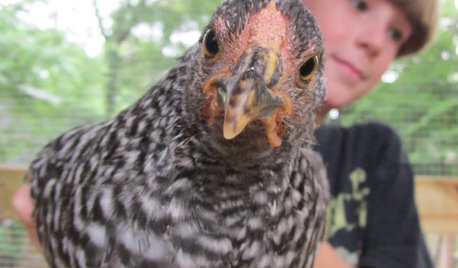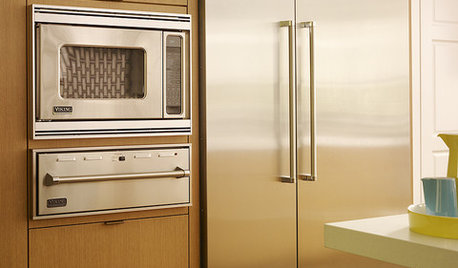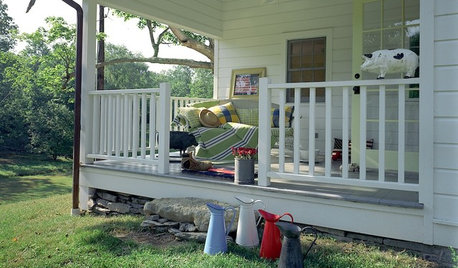'Ignorant' chicken questions....
emyers
15 years ago
Related Stories

GREEN DECORATING8 Questions to Help You See Through Green Hype
With the ecofriendly bandwagon picking up some dubious passengers, here's how to tell truly green products and services from the imposters
Full Story
WORKING WITH PROS12 Questions Your Interior Designer Should Ask You
The best decorators aren’t dictators — and they’re not mind readers either. To understand your tastes, they need this essential info
Full Story
GARDENING GUIDESNo-Regret Plants: 5 Questions Smart Shoppers Ask
Quit wasting money and time at the garden center. This checklist will ensure that the plants you're eyeing will stick around in your yard
Full Story
CURB APPEAL7 Questions to Help You Pick the Right Front-Yard Fence
Get over the hurdle of choosing a fence design by considering your needs, your home’s architecture and more
Full Story
REMODELING GUIDESConsidering a Fixer-Upper? 15 Questions to Ask First
Learn about the hidden costs and treasures of older homes to avoid budget surprises and accidentally tossing valuable features
Full Story
INSPIRING GARDENSChickens, Chess and Swimming Star in a Silicon Valley Yard
Some fowl play is afoot in these outdoor rooms, but the family members and their many guests have a pretty good time too
Full Story
FARM YOUR YARD4 Farm-Fresh Chicken Coops in Urban Backyards
These Atlanta henhouses are worth crowing about for their charming, practical designs
Full Story
BEDROOMSHouzz Quiz: What Color Should You Paint Your Bedroom Walls?
Cool and soothing, or warm and spicy? Answer these questions and learn what hue is right for you
Full Story
KITCHEN DESIGNA Cook’s 6 Tips for Buying Kitchen Appliances
An avid home chef answers tricky questions about choosing the right oven, stovetop, vent hood and more
Full Story
CONTRACTOR TIPSBuilding Permits: 10 Critical Code Requirements for Every Project
In Part 3 of our series examining the building permit process, we highlight 10 code requirements you should never ignore
Full Story





sullicorbitt
emyersOriginal Author
Related Professionals
Wrentham Landscape Architects & Landscape Designers · Cordele Landscape Contractors · Homewood Landscape Contractors · Melrose Park Landscape Contractors · Shoreview Landscape Contractors · Agoura Hills Fence Contractors · Brooklyn Park Fence Contractors · Fort Lauderdale Fence Contractors · Hinsdale Fence Contractors · Homestead Fence Contractors · Santa Maria Fence Contractors · Woodland Hills Fence Contractors · Clermont Decks, Patios & Outdoor Enclosures · Los Alamitos Decks, Patios & Outdoor Enclosures · Woodland Hills Decks, Patios & Outdoor Enclosuresmsmitoagain
marlingardener
gardengalrn
sullicorbitt
farmerintraining
calliope
emyersOriginal Author
jenica
emyersOriginal Author
nelda1234
nelda1234
seramas
msjay2u
emyersOriginal Author
jenica
seramas
emyersOriginal Author